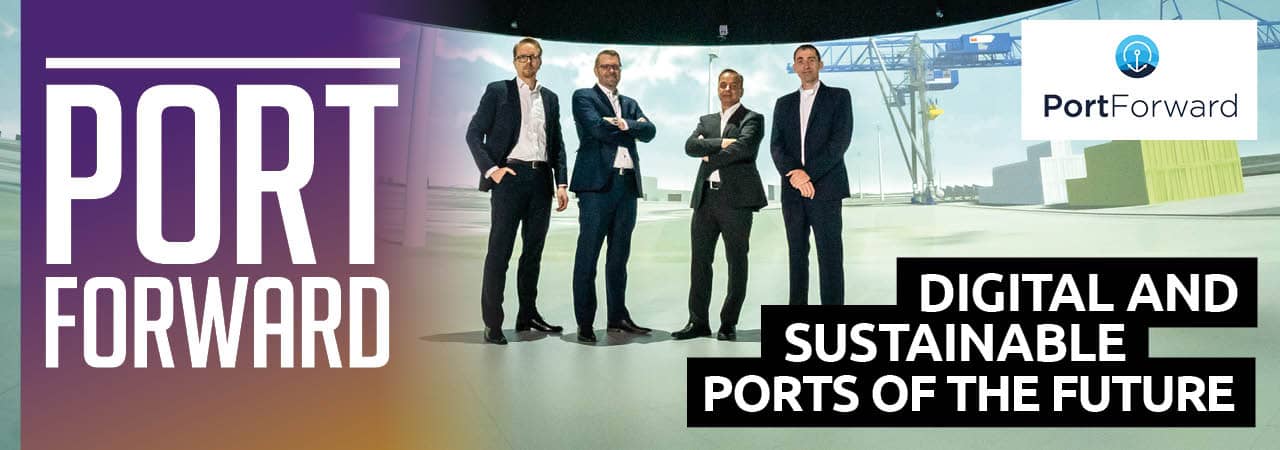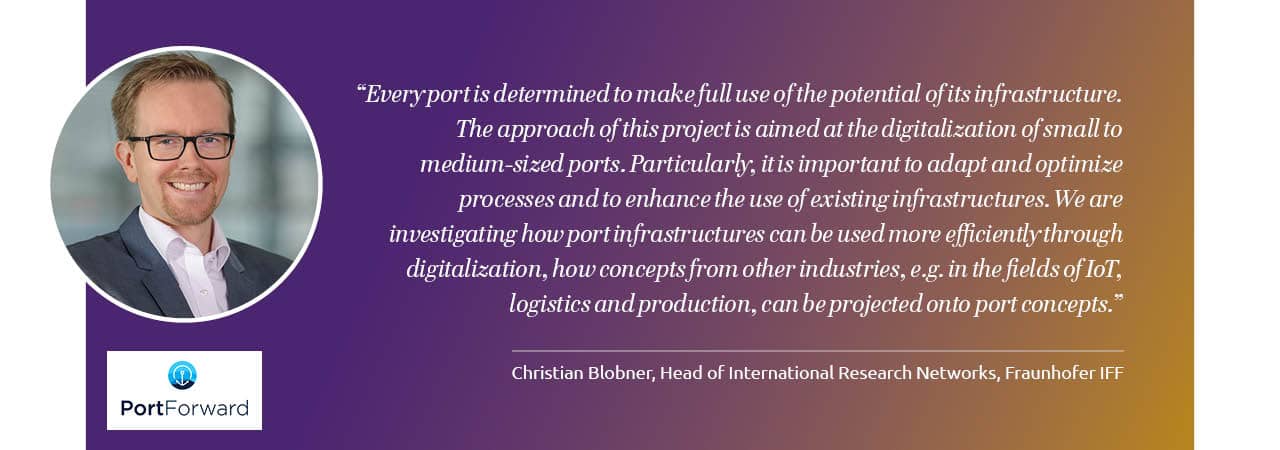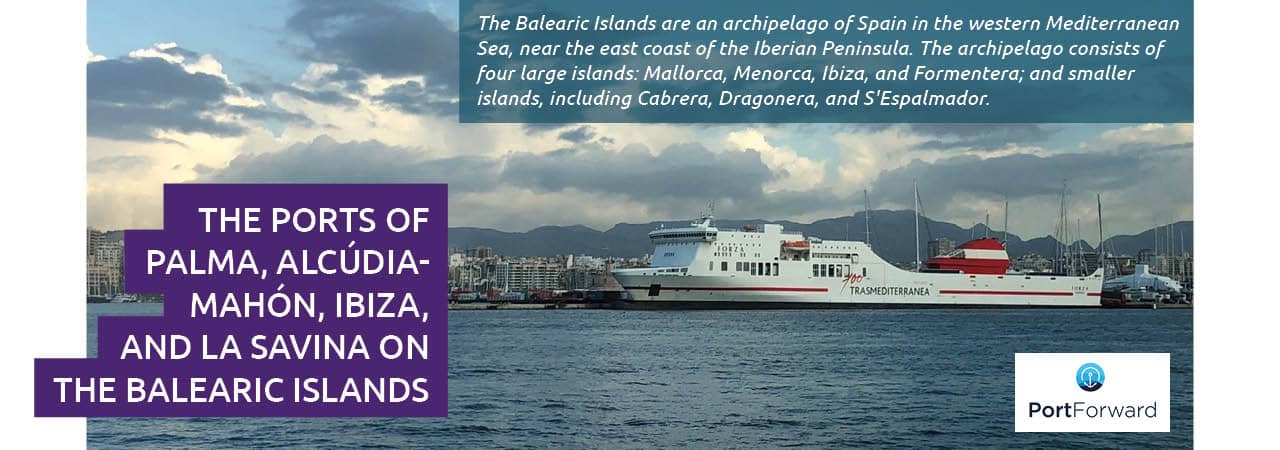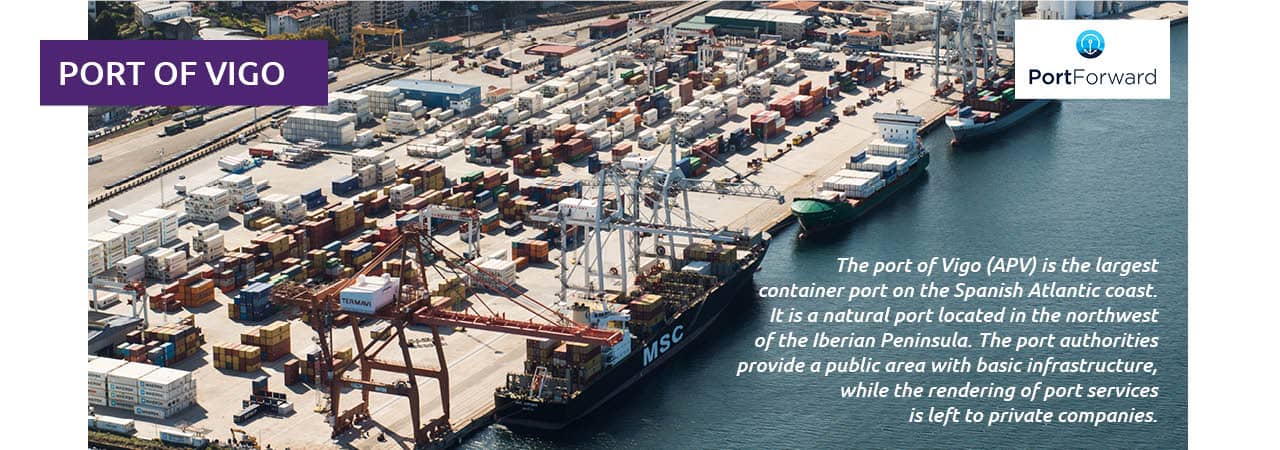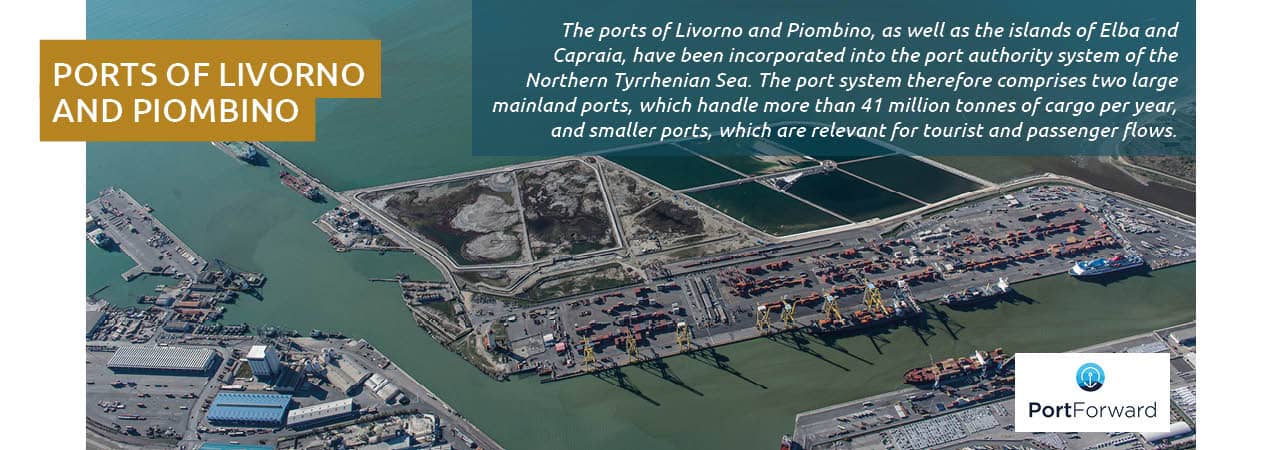PortForward Provides a Solution!
The PortForward project, led by Fraunhofer IFF, is part of the Horizon2020 "Port of the Future" research and innovation funding program of the European Commission.
The objective is to build a competitive and sustainable economy.
The PortForward consortium consists of 13 partners, including the ports of Magdeburg, Balearic Islands, Vigo, Livorno, and Naples. The project, funded with a budget of almost five million euros, started on July 1, 2018 and is due to end on December 31, 2021.
At the respective ports, digital possibilities are evaluated and researched in use cases. The overall objective of the project is to advance digitalization in small to medium-sized ports.
Challenges Faced by European Ports
Inefficiency and high emissions – the main shortcomings of port infrastructures. Without any further intervention, emissions are expected to increase by 50 to 250 percent by 2050. There is no adequate connection with the hinterland and no real-time monitoring or coordination of cargo flows.
In the past, ports have operated autonomously without a collective strategy. The entire maritime industrial cluster of the EU employs 1.5 million people and generates 270 billion euros. For this reason, a new approach will have transnational consequences.
PortForward Provides a Solution
The PortForward project seeks a holistic solution that interconnects a seamless, versatile, and secure IoT network.
Christian Blobner explains: "We are investigating to what extent digitalization can push the port infrastructure forward and how concepts from the fields of IoT, logistics, and production can be adapted to port concepts”.
The project targets a 10 percent reduction in total operating costs. A 10 to 30 percent increase in efficiency in the EU logistics sector would result in annual savings of 100 to 300 billion euros. Furthermore, the consortium estimates that the implementation of the project will lead to a reduction in port emissions of around 10 percent per year.
PORT of MAGDEBURG
There are plans for two designated use cases with the technology partner Fraunhofer IFF on-site. On the one hand, the development of a dynamic warehouse management and, on the other hand, the automated identification and recording of warehouse goods and resources. A digital twin is to be developed which supports operational processes by interface connection with IoT devices in real time.
As a result, a digital twin of port infrastructures is created – a cross-location system that is networked with external sensors via middleware capacities and cloud services. This enables flexible use and reduces search and coordination costs.
PORT of VIGO
In Vigo, research efforts focus on the analysis of life cycle data and the development and testing of the so-called Green Yard Scheduler. In this case, the optimization of container management is examined from an environmental point of view. How can management be optimized sustainably?
Christian Blobner explains: "Optimizing processes is extremely important because it means that existing infrastructures are also better utilized, which in turn increases capacity for customers". Technology partners for these use cases include Brunel University London, Leitat, and Imec.
PORTS of LIVORNO and PIOMBINO
The port system is highly specialized in ro/ro-traffic, which means that the port facilities, access roads, and the environment are consequently heavily polluted. The port's research objectives include AR-based navigation and remote maintenance.
The first use case addresses pilot assistance during ship maneuvers in port waters. The second use case focuses on support for custom controls and inspections within port boundaries. In both applications Ubimax from Germany provides support with smart glasses solutions on-site.
PORTS of NAPLES and SALERNO
At present, the ports are lagging behind in terms of infrastructure, seabed maintenance, cargo handling capacity, technological services, and competitiveness. The quay facilities are not able to meet the market demands in light of the development within the next years. The main areas of research are intelligent logistics and socioeconomic studies.
The use case addresses the monitoring of port performance in different port areas using the PortForward Dashboard for decision support in planning and operational phases. The project partner is MAR.TE from Italy.
THE PORTS of PALMA, ALCÚDIAMAHÓN, IBIZA, and LA SAVINA on THE BALEARIC ISLANDS
On the Balearic Islands, the project focuses on intelligent maintenance and logistics. There are a total of three use cases.
The first, ship loading, ro/ro terminal handling (roll-on/roll-off) and the optimization of logistical services are being examined. The Spanish partners Acciona and Leitat, as well as the Belgian research institute Imec, are on board for this purpose.
Second, the optimization of the central monitoring and management of heterogeneous port systems will be optimized with the help of Acciona, Imec, Leitat, and Fraunhofer.
In the third use case, movements between city and port are examined with regard to increasing safety and improving passenger transport for tourism activities.
Christian Blobner explains, "Here, existing information is used to optimize visitor management and to provide value-added information for the port and the municipality of Palma de Mallorca.” Leitat and Acciona support this use case as technology partners.
European Commission: Measures of Digitalization for Ports
The PortForward project is embedded in the following two affiliated projects. One of which is Corealis (Capacity with a positive environmental and societal footprint: Ports in the future era) and the other, Pixel (Port IoT for Environmental Leverage). Both projects started on May 1, 2018 and will run until April 30, 2021.
The ports of Valencia, Piraeus, Antwerp, Livorno, and Haminakotka are participating in the Corealis project with a cumulative budget of more than 5.1 million euros. The objective: to increase efficiency, to optimize land use, to enhance the urban environment, and to be financially viable.
With a combined budget of almost 4.9 million euros, the ports of Bordeaux, Monfalcone, Thessaloniki, and Piraeus are participating in the Pixel project. Their objectives are: the mutual cooperation between ports, to enable multi-modal means of transportation and cities, the optimal use of resources, reduction of environmental impacts, and sustainable economic growth.
RFID & Wireless IoT Global: Magazine for RFID, wireless IoT, and process optimization
This article was produced and released by the editorial team of RFID & Wireless IoT Global. The e-magazine is published 6 times a year with 52 pages filled to the brim with information and know-how. We report in detail and up-to-date on the latest technological developments and use cases in the fields of industrial production, logistics, retail, security, medical industry, smart city & consumer IoT, hardware, research and digitisation.
Order a digital subscription for 49 € incl. VAT.


